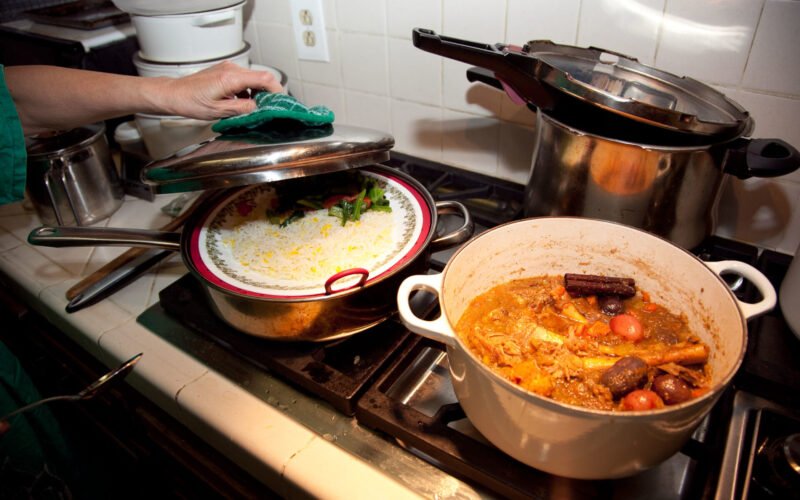UTTAR PRADESH – The ban has raised concerns about the impact on the Muslim population and their dietary choices.
In a recent decision, the government of Uttar Pradesh, which is one the India’s most populated states, has passed a notice that calls for a ban on the sale of products particularly labeled as Halal-certified.
This ban encompasses various items such as dairy, clothes, medicines, bakery goods, sugar, and cooking oil. The government argues that the Halal certification system creates confusion about the quality of these products, likening it to a separate system running alongside the standard rules.
The Food Safety and Standards Authority of India (FSSAI), responsible for deciding food standards in the country, supports this ban, believing it will prevent confusion and ensure all food meets the set standards. This decision has been made amidst accusations that the state’s leaders are creating divisions among its people, particularly targeting the Muslim community.
A government spokesperson stressed that religion shouldn’t influence what we eat. They pointed out that labeling items like garments and sugar as ‘Halal’ goes against the law. The government promises strict actions against anyone involved in making, storing, selling, or buying medicines, medical devices, or cosmetics with Halal certification.
Critics argue that this move might disproportionately affect the Muslim population in the state, as Halal certification is significant for their dietary practices. The ban, they say, could limit the availability of products preferred by the Muslim community, raising concerns about their ability to access suitable food items.
The government is also concerned about some companies taking advantage of religious feelings for financial gain. Cases have been filed against these companies, accusing them of creating fake Halal certificates and breaking the law.
In conclusion, Uttar Pradesh’s decision to ban the sale of Halal-certified products not only aims to ensure food quality but has also sparked concerns about its potential impact on the Muslim population’s dietary choices.
RECENT NEWS:


 WhatsApp Channel
WhatsApp Channel
 Instagram
Instagram
 Facebook
Facebook
 X (Twitter)
X (Twitter)
 Google News
Google News
As per the UP Government Report and FIR filed, entities such as Halal India Pvt. Ltd., Chennai, Jamiat Ulama-I-Hind Halal Trust, Delhi, Halal Council of India Mumbai, Jamiat Ulama, Maharashtra and others have exploited religious sentiments by putting ‘HALAL’ label certifications on products such as, dairy itmes, Sugar, Bakery Products, Pepptermint Oil, Salty ready-to-eat beverages, edible oils,certain medicines, medical devices,cosmetic products. etc., etc., for unfair financial benefits creating unwanted product and social discrimination. This can psychologically only be termed as ‘paranoid’. This does not apply for products for ‘Exports’.
AALO,PYAZ,LAHSAN ,ADRAK,TAMATAR,LOKI,BHINDI,SHALJAM,CHQANDAR,MIRCH,SAB HALAL HAY YEA BHI KHANA CHORDO
KIA KIA KHANA CHOROGAY HALAL CHEEZAIN TO HINJDU ESAI SAB HE KHATAY HAIN
HUM MUSALMAN HARAM CHEEZAIN TO KHATAY HE NAHI BUS YAHODION KI CHEEZON KA BYCOT KIA HAY